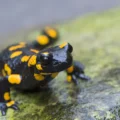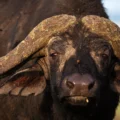A recent study highlights that over one-third of Vietnam’s 329 mammal species are threatened with extinction. Conducted by German scientist Hanna Höffner of the University of Cologne and Cologne Zoo, alongside an international team, the research underscores Vietnam’s vital but fragile position as a biodiversity hub within the Indo-Burma Biodiversity Hotspot.
Published in the open-access journal Nature Conservation, the study reveals that 112 mammal species in Vietnam face extinction, despite most being found in at least one protected area. Some micro-endemic species, such as Murina harpioloides, are particularly vulnerable as they are not present in any protected sites.
Around 40% of the threatened species lack ex situ conservation (zoo conservation breeding) programs, increasing their risk of extinction. Iconic species like the saola (Pseudoryx vuquangensis), the silver-backed chevrotain (Tragulus versicolor), and the large-antlered muntjac (Muntiacus vuquangensis) are among the Critically Endangered taxa at risk.
The study advocates for the IUCN’s “One Plan Approach” to species conservation, which calls for combining different expertise and integrated in situ and ex situ management strategies. Establishing assurance colonies in zoos and increasing connectivity between isolated protected areas are critical recommendations for safeguarding Vietnam’s unique mammal diversity.
By building up ex situ populations for threatened taxa, zoos can help to literally “buy time” and act as modern arks that can contribute with later releases according to the IUCN’s “Reverse the Red” conservation campaign. Ex situ species holding data by Species360 are now also integrated in the IUCN Red List species’ chapters (a “One Plan” approach to species data).
Vietnam is home to a rich array of mammals, including 36 endemic species and nine micro-endemic taxa. Its primate fauna is particularly noteworthy, with 28 species, the highest number in mainland Southeast Asia. This includes the endemic tonkin snub-nosed monkey (Rhinopithecus avunculus) and Delacour’s langur (Trachypithecus delacouri).
Northern Vietnam and the Annamite Mountain Range are biodiversity hotspots, hosting species such as the Critically Endangered Cao-vit gibbon (Nomascus nasutus), the southern white-cheeked gibbon (Nomascus siki) and the red-shanked douc (Pygathrix nemaeus).
The study calls for prioritising the “One Plan Approach” to conservation of highly threatened species, reassessing Data Deficient species, and enhancing habitat connectivity. The conservation campaign VIETNAMAZING by EAZA (European Association of Zoos and Aquaria) currently highlights Vietnam’s biodiversity treasure and advocates for improved conservation of threatened mammal species.










No Comments
Leave a comment Cancel